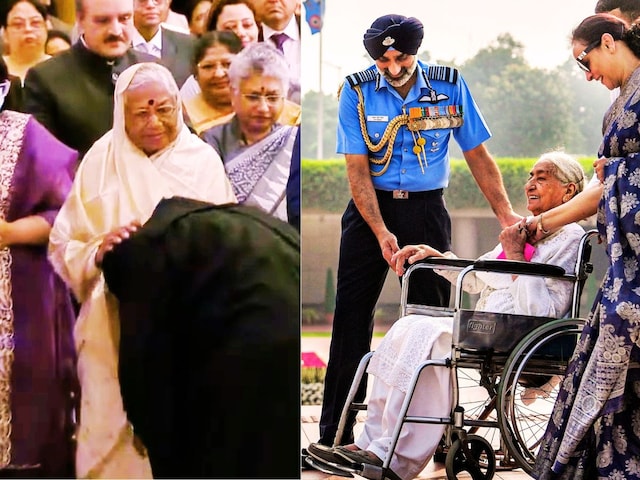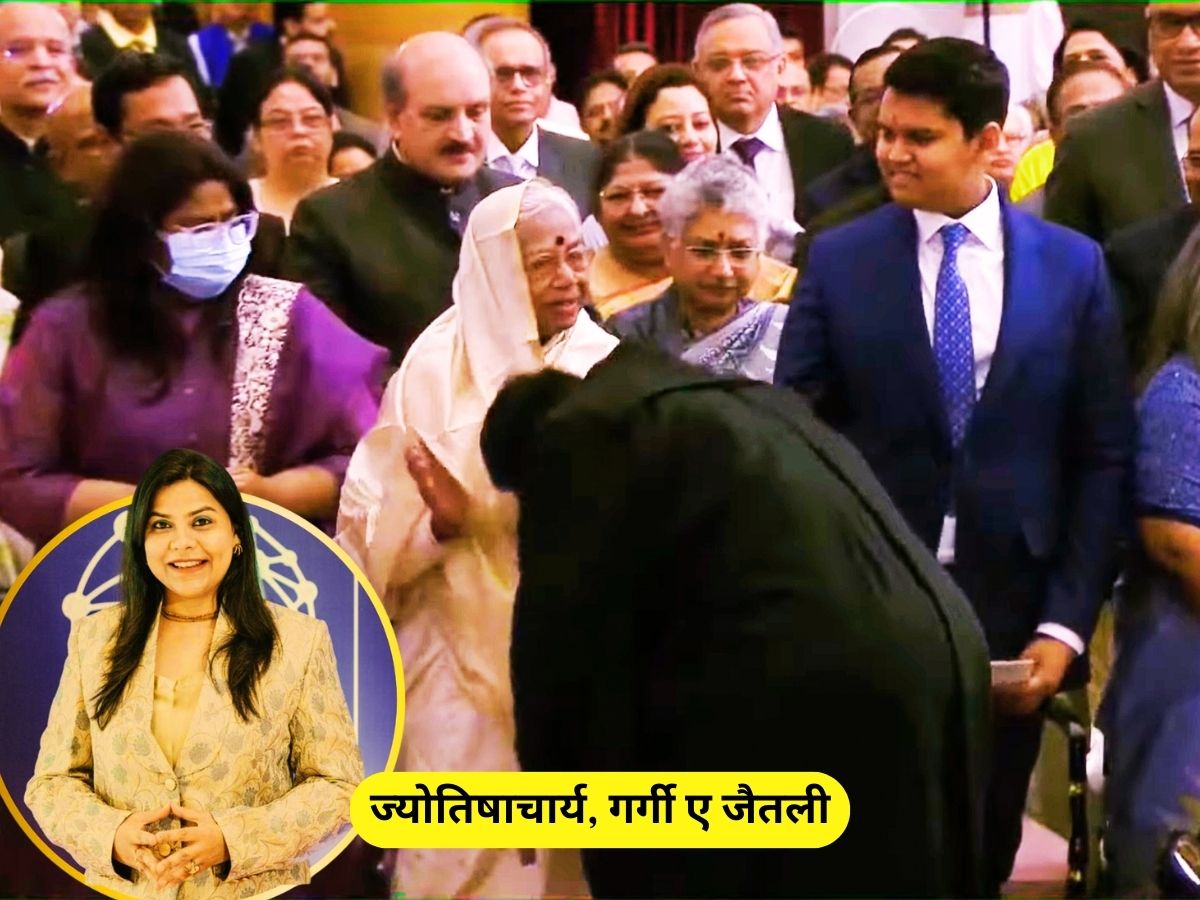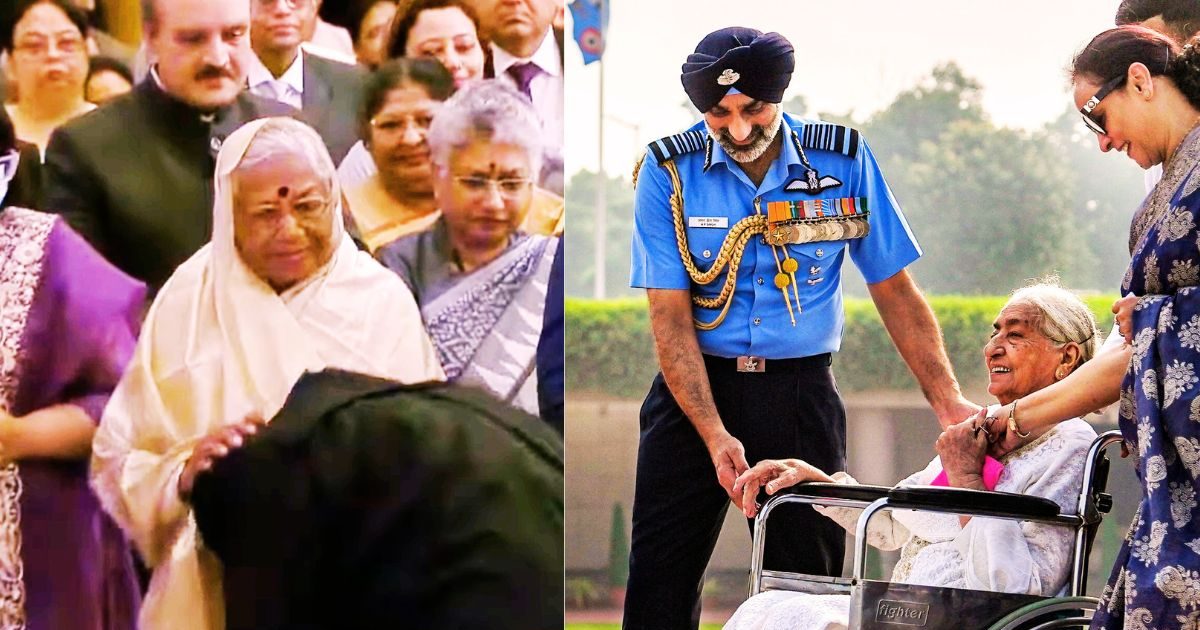Last updated:
Justice Bhushan Ramakrishna Gavai touched his mother’s feet before taking oath as the 52nd Chief Justice of India. It shows respect and humility towards elders in Indian culture.

Justice Gawai touched the feet of his mother Kamaltei Gawai.
Highlights
- Justice Gawai touched her mother’s feet before the oath.
- In Indian culture, phase is a symbol of touch respect.
- Step touch gives mental peace and balance.
Why Touching Mother’s feet holds deep significance in Indian culture: Justice Bhushan Ramakrishna Gavai is known as a courageous and decision -making judge, who clearly expresses his views. On Wednesday, Justice Bhushan Ramakrishna Gavai was sworn in by President Draupadi Murmu as the 52nd Chief Justice of India (Chief Justice of India) at Rashtrapati Bhavan. But before taking oath, Justice Gavai was seen touching his mother Kamaltei Gawai’s feet. In this emotional glimpse of Indian tradition, earlier Indian Air Force Chief Amar Preet Singh was also seen touching his mother’s feet before taking oath. The sons seen in these two pictures are sitting in 2 most powerful positions in the country, but before climbing that ladder, they were seen bowing at the feet of their mother. This scene reflects deep values, respect, humility and reverence for adults, which have been preserved by generations.
Tradition
Touching the feet of the elders, which is called salutation or phase touch, is an ancient tradition of India. It is a symbol of honoring gratitude, guidance and renunciation of elders. It is believed that taking blessings of elders like parents gives success and auspiciousness in any new work. This tradition occurs above the position, prestige or achievements. Actually, phase touch is a tradition of Indian culture that makes you vinemune and bending. In Indian families, children are taught to respect elders from the beginning, and the phase touch is an emotional symbol of it. This is not just a ritual, but the heart is a sense that accepts the contribution of elders. Whether it is a new beginning, festival or any important opportunity, this tradition connects the family and maintains humility.
What does it mean to touch your feet in Indian culture?
Nowadays you must have heard the words of Gratitude Process. This is a new concept that people adopt during the Menference process. But in Indian culture, the price of gratitude i.e. Gratitud has always been in our origin. Apart from negativeness and sikayati attitude, Indian culture considers the tradition of touching the feet of elders and through the Pitra-Paksha worship to its ancestors. Famous Jyotishacharya Gargi -e -Jaitley also explains the generous importance of this tradition. She says, ‘Mother is your lunar planet in Jyotish. Your mother is considered a representative of the moon. The moon is a factor of mind, emotion, and mental balance. That is, when you touch your mother’s feet, then you are sacrificing your moon. Touching the feet of the mother gives benefits like mental peace, emotional balance, family happiness and better memory power. By touching the mother’s feet, you also promote sensitivity within yourself.

Justice Bhushan Ramakrishna Gavai has become the 52nd Chief Justice of India.
Rapidly in modern India, where traditional values sometimes come under the pressure of modern lifestyle. At such a time, this public step of the Air Force Chief and Chief Justice gives a powerful message that Indian culture is equally strong today, as before. It shows that no matter how high the person reaches, the blessings of the elders always remain a source of strength and inspiration.
Deepika Sharma has been working in News18 Hindi for the last 5 years. While holding the post of News Editor, with the lead to the entertainment section for 4 years, now Lifestyle, Astrology and Dharma are leading the team. Letter…Read more
Deepika Sharma has been working in News18 Hindi for the last 5 years. While holding the post of News Editor, with the lead to the entertainment section for 4 years, now Lifestyle, Astrology and Dharma are leading the team. Letter… Read more
